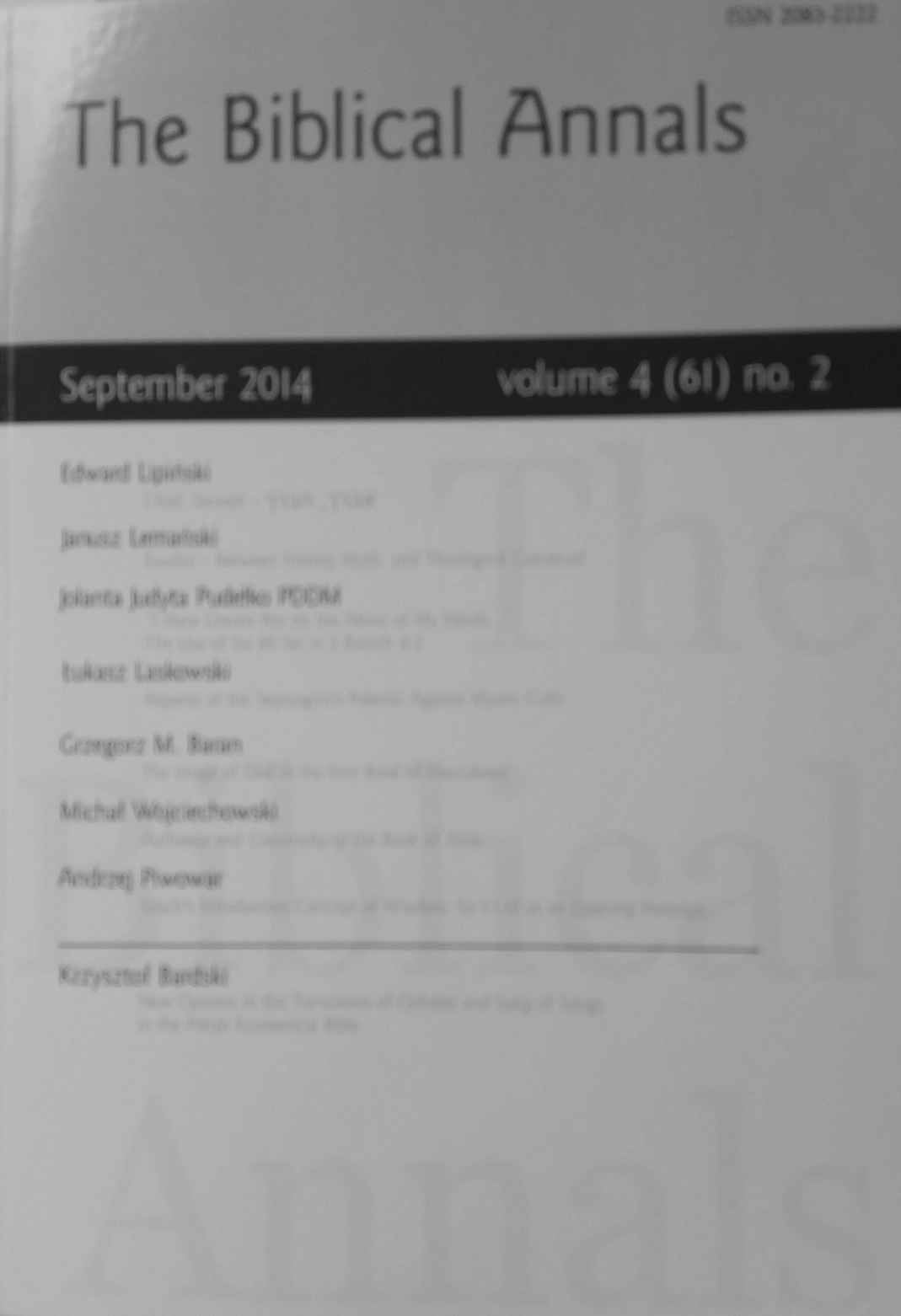Niektóre aspekty polemiki Septuaginty z kultami misteryjnymi.
Some Aspects of the Septuagint’s Polemic Against Mystic Cults.
Author(s): Łukasz LaskowskiSubject(s): History, Language and Literature Studies, Jewish studies, Theology and Religion
Published by: Katolicki Uniwersytet Lubelski Jana Pawła II - Wydział Teologii
Keywords: Septuagint; mysteric cults; Dionysios; Demeter; Isis; Mitra, Baal-Peor; Belphegor; idolatry; Num 25; Deut 23:18; 1 Kgs 15:12; Am 7:5; Hos 4:14; Jer 16:5;
Summary/Abstract: This article provides an analysis of the occurrence of basic terms related to the Greek mystery cults in the Septuagint. Such terms as τελεταί, μύσται and θίασοι appeared to be so significant and wide that could be employed in expressing theological views on current reality while translating. Considerably general criticism of initiations seems to reflect the translator’s polemics against traditions which he considered unacceptable in the light of the Yahwist. The Baal-Peor cult (Numbers 25:3,5 and Psalms 105:28 LXX) was perceived by the translator as one of the initiations. The translation of the Book of Amos 7:9 defines the idolatrous temples of Israel as initiations, thus being living institutions and not specific locations. A similar approach can be observed in the translation of the terms qedesha and qadesh. in Deut 23:18, 1 Kgs 15:12 and Hos 4:14, whereas the term θίασοι in translation of Jeremiah 16:5 refers to feasts in the honour of deities. It should be noted, however, that the Septuagint translators’ reference to mystery cults was not their main focus of attention. Translation phenomena observed herein remain rather marginal even in comparison with the writings of Philo or Flavius Josephus. Therefore it can be inferred that the problem in question was a peripheral part of a larger phenomenon, i.e. condemnation of idolatry.
Journal: The Biblical Annals
- Issue Year: 4/2014
- Issue No: 61/2
- Page Range: 334-354
- Page Count: 21
- Language: English, Polish

